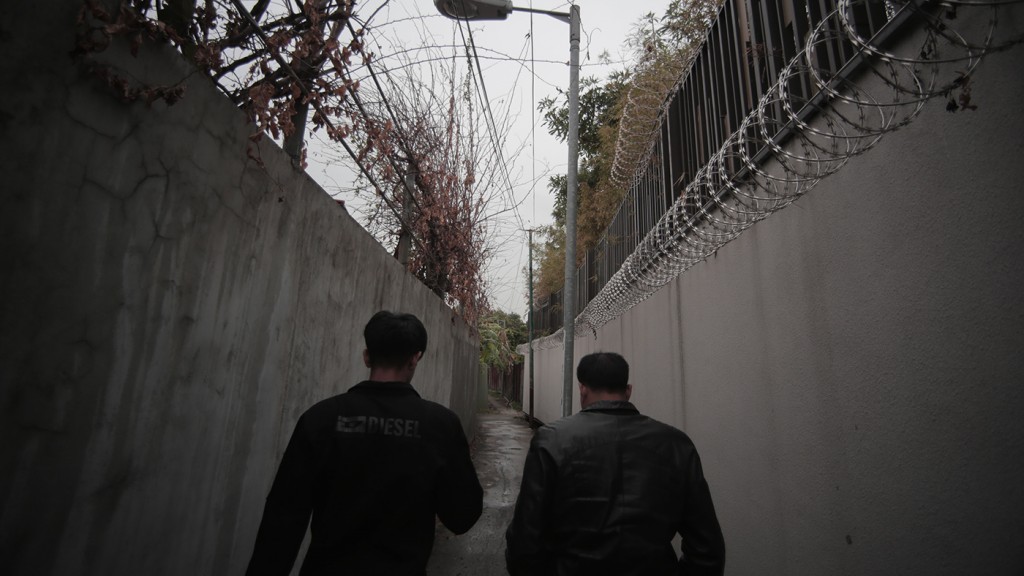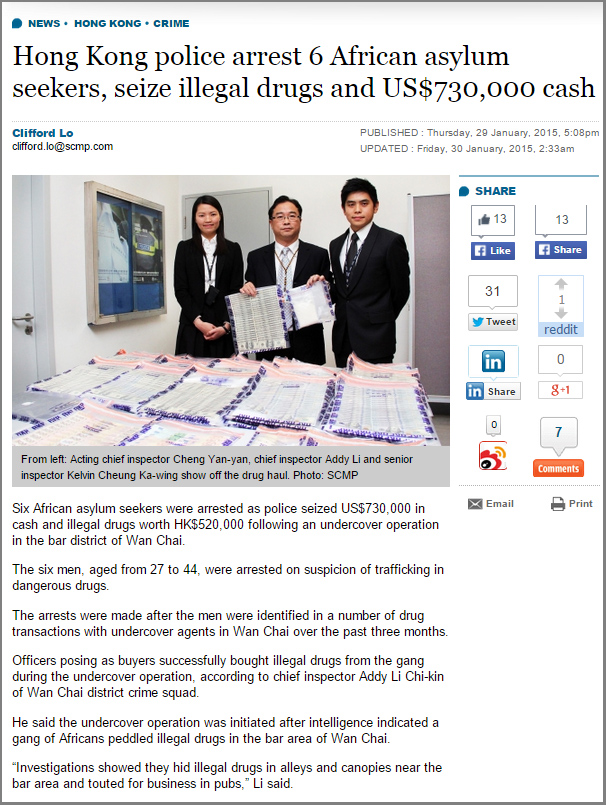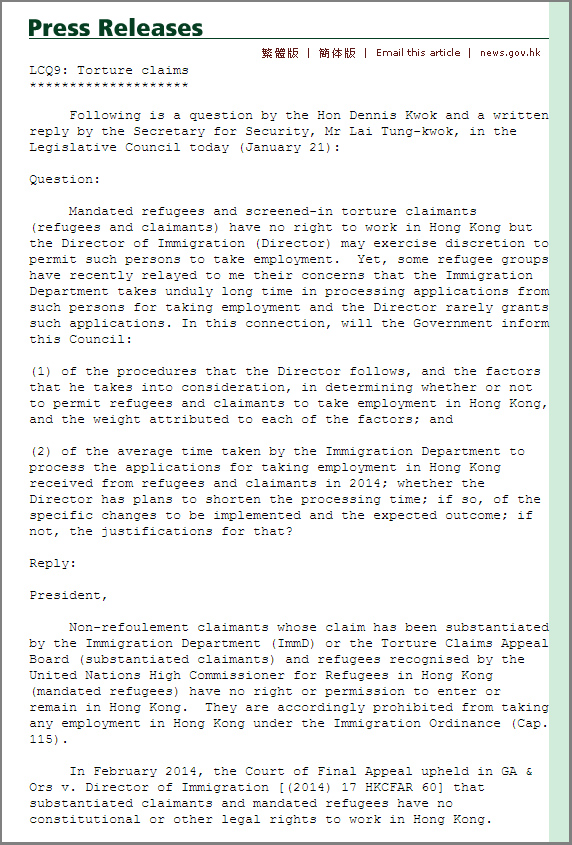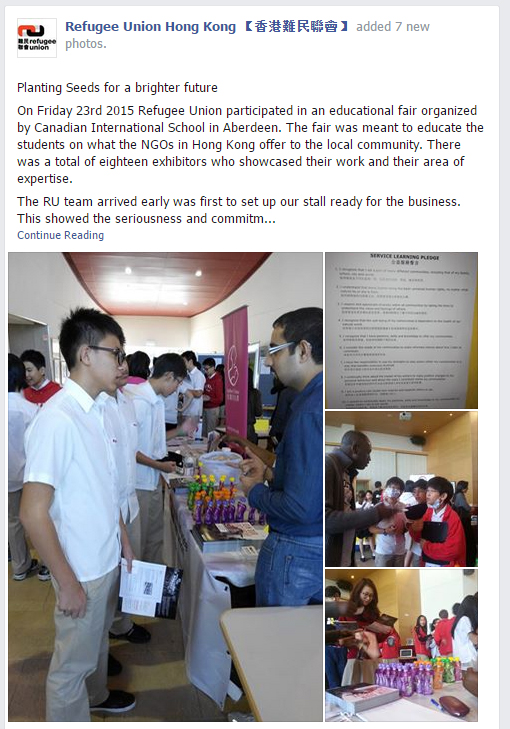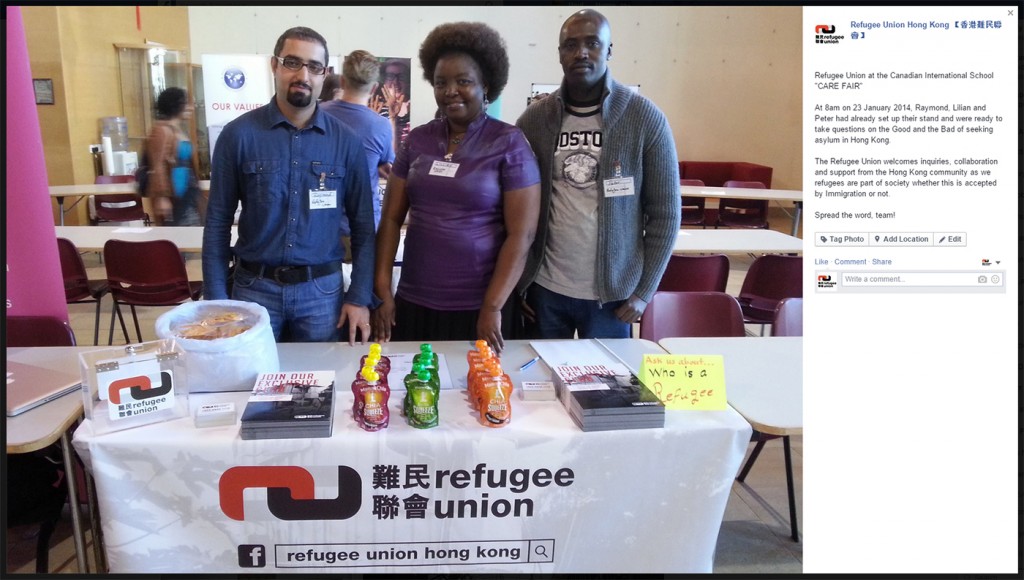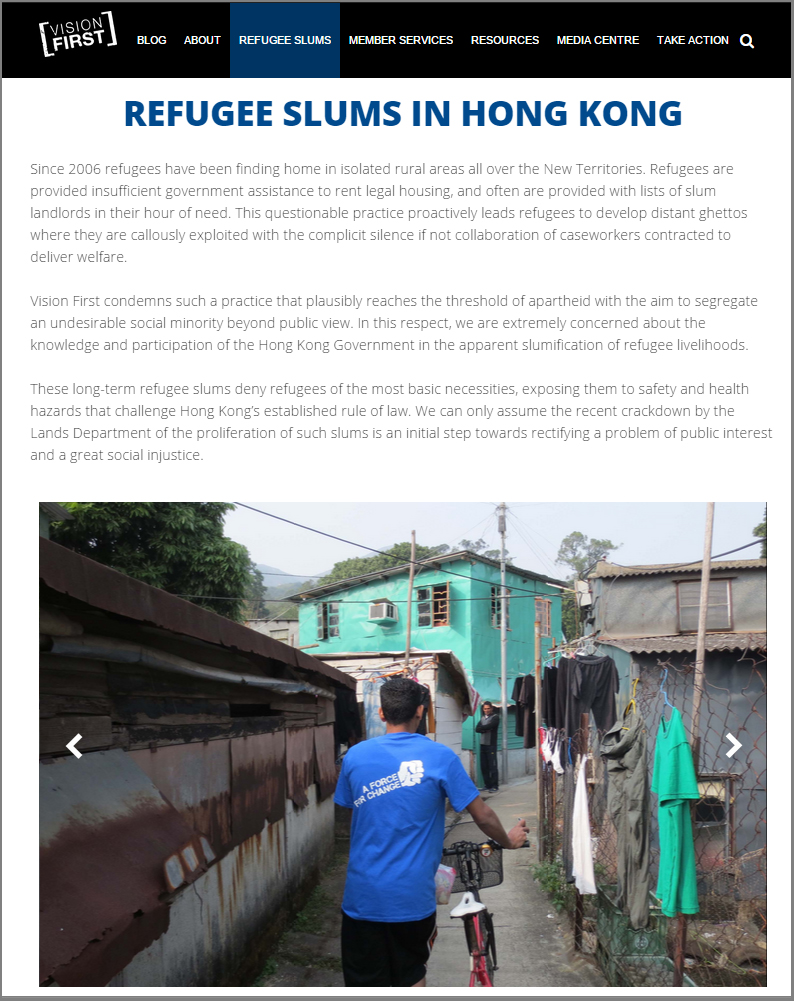VF Report: lease enforcement action to be stepped up
Jan 29th, 2015 | Crime, Housing, Legal, VF Report, Welfare | Comment
On 28 January 2014 senior executives from the Lands Department held a meeting with Vision First and Refugee Union representatives, one of whom has continuously resided in a slums paid for with government funds since he arrived in 2006.
The refugees presented three voluminous bundles of photographic evidence to formally lodge complaints on 69 questionable compounds erected on lots that Lands officers agreed were “mostly for agricultural use, including chicken and pig licenses no longer in use, because the government doesn’t allow [such business] having imposed many restrictions on farmers.”
The delegation was assured that registered owners were in breach of lease covenants for any structures that were not exclusively for agricultural or gardening use. It was brought to attention that the issue is not whether housing was properly constructed, but that no housing whatsoever is permitted on farmland and as such would be targeted for demolition.
It was noted that irrespective of collusion (by way of documentary inspections and site visits), registered owners were ultimately responsible for the existence of structures that third parties allegedly exploited to profit from the welfare program for refugees. The Lands Department did not consider acceptable justifications that ‘primary tenants’ had rented land for purposes landlords were unaware of.
Acting on the above mentioned complaints, warning letters demanding the removal or demolition of unauthorized structures are likely to be sent out copiously, failing which encumbrances will be registered with the Lands Registry and the government will take steps to ‘re-enter the land’.
A promise was made for zero tolerance of lease breaches. An officer explained, “Any conversions that are not designated for agricultural or gardening use are prohibited. Any structures that are not described in the land schedule must be removed”. It was categorically emphasized that settling refugees in these compounds constituted an offense under the law.
The delegation was told: “The government is very concerned. Everyone is concerned with the health of the occupants. We will step up enforcement action, including with estate agents … the Social Welfare Department is concerned with the management and supervision of ISS.”
A refugees who spearheaded the anti-slum campaign remarked, “The government accepts there is a huge problem. Last week my officer said ISS only approves the houses after getting approval from the Lands Department.” Vision First is hopeful that the tide is turning on the reckless practice of settling destitute refugees in dangerous and unhygienic slums away from the public eye. At what price?
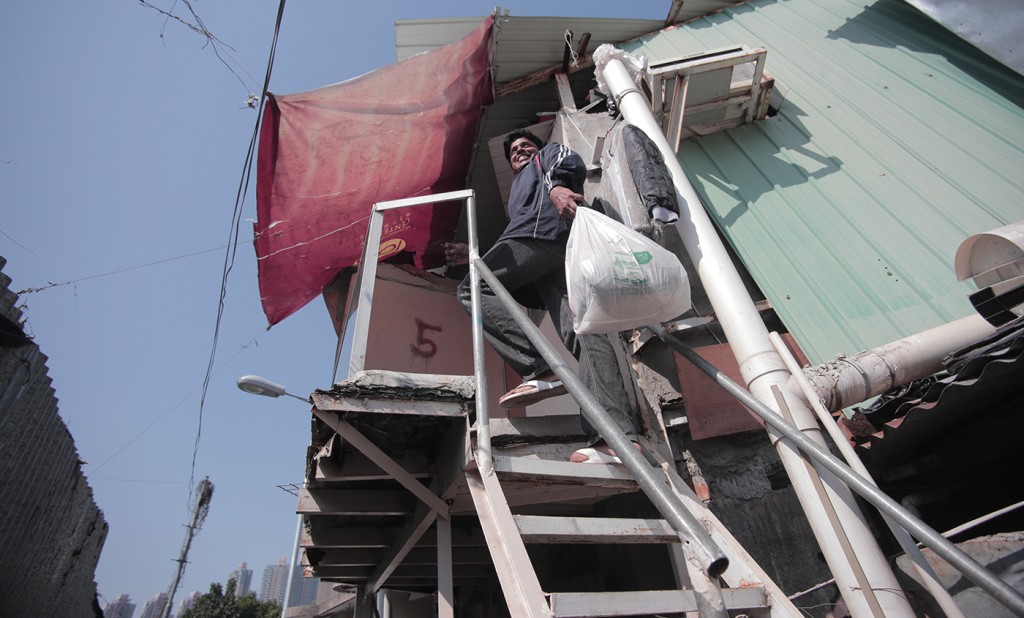
Hong Kong police arrest 6 African asylum seekers, seize illegal drugs and US$730,000 cash
Jan 29th, 2015 | Crime, Media | Comment
Judicial Review favorable for dependent visas
Jan 28th, 2015 | Legal, VF Opinion | Comment
As many refugee spouses face “Non-Decisions” by Immigration on their dependent visa applications, a process that can drag on for years with the repeated submission of the same documents, those lucky ones who receive a reply may find it unsatisfactory.
Particularly, the following judgment seems to shine light on a depraved problem. What weight is given by Immigration to the applicant’s criminal record and family circumstances when considering a visa that may change not only the life of the sponsored refugee, but also that of resident children who might grow up without the love and support of a parent considered undesirable by the state?
How many such cases do refugees need to win before proper policies give certainty to an abusive aspect of the asylum process?
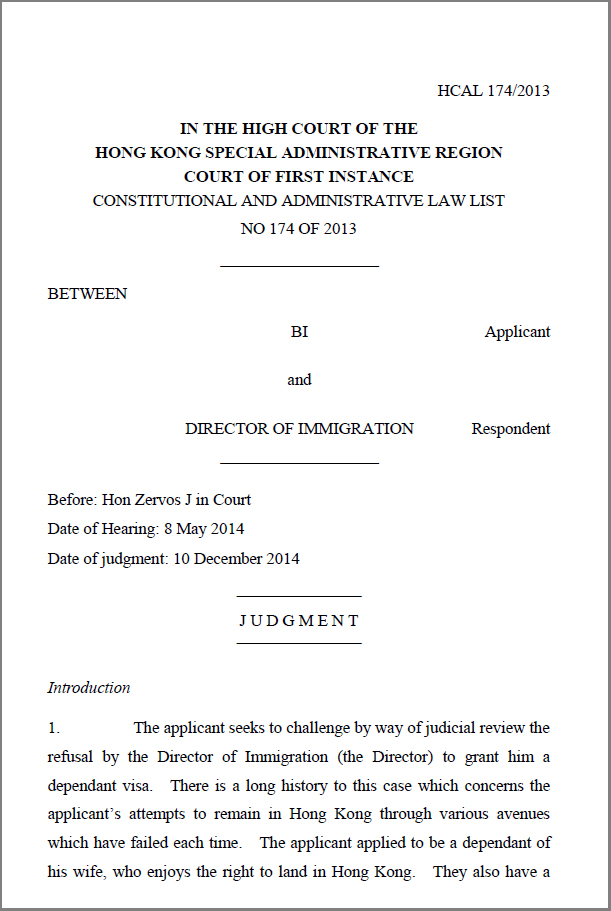
Mandated refugees and screened-in torture claimants have no right to work in Hong Kong
Jan 27th, 2015 | Immigration, Legal, Media | Comment
Are dependent visas reasonably denied?
Jan 27th, 2015 | Crime, Immigration, Legal, VF Opinion | Comment
After seeking asylum in Hong Kong, one of the first things refugees learn from peers is that they will never be allowed to integrate and earn a living (including successful non-refoulement claimants) unless they marry a resident and successfully obtain a dependent visa – which requires withdrawing protection claims before the sticker is affixed to a passport.
Immigration guidelines indicate that dependent visas generally take three months to process, although refugees experience a different treatment that, when successful, is likely to take two years and otherwise drags on for many years with litigation (which doesn’t come free) rising as the only option to break the stalemate, if official obduracy can be described as such.
A refugee blogger recently described immigration strategies as perceived by his community, “They know that certain people will find a way that is convenient for the government – though unfair for refugees – like marriage, moving to another country, smuggling out and closing asylum claims through so-called ‘voluntary departures’.”
The stigmatization of individuals who sought sanctuary in Asia’s World City is so profound that even years of love with local citizens cannot wash it away. Not even when beautiful children are living proof that marriages are real and a genuine family exists behind the paperwork that, in the mind of immigration officers, might have thrown a monkey wrench into removal proceedings.
A pattern emerges when scores of dependent visas are denied or delayed for applicants who were so unfortunate as to seek asylum before falling in love. It is unrealistic to expect that authorities publish statistics on failed application, which in our view should include applications stalled by ‘non decisions’ for over one year. The data would speak volumes about the bias treatment of refugee spouses.
It is regrettable that Immigration consistently fails applicants who committed mild offenses such as working, despite work being absolutely necessary for refugees to make ends meet since they do not receive adequate welfare assistance and belong to ethnic groups that are largely shunned by charities as being less deserving of their limited resources.
Working illegally is a matter of survival for most refugees, but a criminal conviction will jeopardize the fate of a family – including the future of resident children – even if a struggling refugee was arrested years before for selling bootlegged software or fake leather bags to keep a roof over his head or supplement meager food rations. Where is the fairness of laws that constrain pathways of survival only to mercilessly penalize those with no alternative but to stray?
A few examples illustrate the predicament faced by dozens of refugees:
Case one: a refugee since 2005, married in 2013 and was denied a dependent visa for reason of a life-time deportation order triggered by a 2007 offense “to export goods to which a forged trademark was applied” [NB: copy goods] at a time before he knew about refugee welfare assistance.
Case two: a refugee since 2005, married in 2011 and has a son. He was convicted of working, though he pleaded not guilty as he was visiting a friend at his place of employment. He was nonetheless convicted to four months and marked as ‘persona non grata’.
Case three: a long time refugee since 2002 married in 2008 and has a son. This family has been waiting for a dependent visa for 6 years. Arrested for false representation to an immigration officers after arriving in Hong Kong with a dodgy passport, he was served a deportation order that he gets suspended every year by the office of the Chief Executive. He has no chance of being granted a visa until said order is quashed.
Vision First takes the view that refugees must not be punished for struggling to survive in a hostile environment arguably designed to push them into criminality. On Sunday a refugee was arrested for being in possession of 5 mobile phone chargers (worth 300$) which he is accused of intending to trade, presumably to support his wife and child. Wouldn’t police resources be better allocated pursuing more substantial criminal activity?
It is further a travesty of justice that resident spouses and children are denied a legitimate future. There is a need for a moratorium on immigration rules the stringent application of which will never persuade fathers to abandon their loved ones.
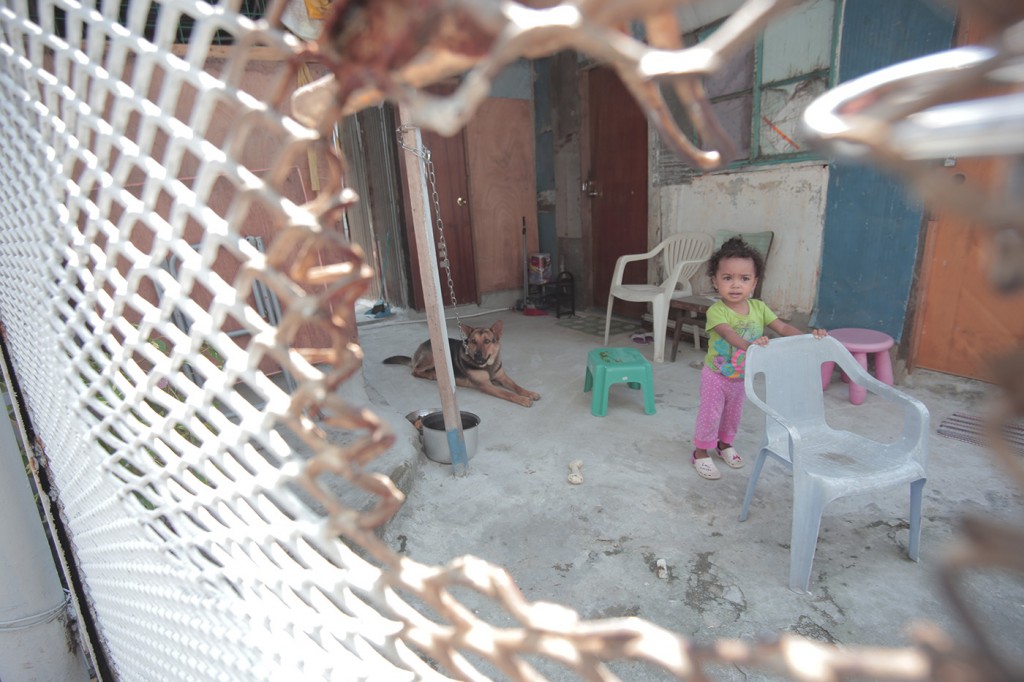
Refugees encouraged to take their troubles elsewhere
Jan 23rd, 2015 | Immigration, Personal Experiences, VF Opinion | Comment
A refugee blogger distressingly underscored the reality that crushes hope in his community. He wrote, “Hong Kong immigration delays hundreds of old cases because the answer would be positive”. Vision First has been informed by several refugees that Immigration officers had acknowledged, off-the-record, that their claims were strong, but no decision was ever made to accept or reject. Why?
Last week a refugee who sought asylum in August 2005 reported that he was summoned for yet another seemingly pointless interview. He lamented, “Three of us escaped to Hong Kong together. One went back, one left for Europe and I still do interviews. I forget how many times.… Are they waiting for me to forget or make a mistake on my case?”
His friend, who arrived in Hong Kong in 2003, had this to say, “They keep telling me I have a good case. They said it twelve years ago when I was 25 and now I am getting old. My lawyer said that they don’t know what to do with my case. It’s unbelievable.”
A few considerations should be made:
First, the legal framework governing asylum isn’t to blame. It could certainly be improved, but it is acceptable. The problem is implementation and, in particularly, ultra-long assessment times that raise the aphorism “justice delayed is justice denied”. Frequently no further evidence is provided, as in the case of a recognized torture claimant accepted after 10 years without adding anything to his first statement. The above blogger commented, “They know that certain people will find a way that is convenient for the government” and four recent cases may illustrate his point.
Case One: arrived in HK in 2007 and opted for ‘voluntary departure’ in 2014; sought asylum in Holland and was recognized as a refugee three months later; received 1500 Euro to meet living expenses until he found a job.
Case Two: arrived in HK in 2013 and opted for ‘voluntary departure’ in 2014; sought asylum in France and was recognized as a refugee in six weeks; was given a 5 years permit to stay with working rights and a monthly stipend until he found a job.
Case Three: a screened-in torture claimant of 2013, closed his protection case to ‘voluntarily depart’ in December 2014 for a European country where he lodged an asylum claim. His Hong Kong lawyer supported the decision because recognized refugees do not enjoy work rights and exceptions are hard to obtain and limited in scope.
Case Four: arrived in HK in 2013 and is utterly disillusioned about protection and future prospects. For the sake of wife and children, whom he is unable to assist back home, he plans to close his case and return to a neighbouring country. He will sell property and seek asylum in Europe.
Second, Europe is often mentioned as an idyllic place to seek asylum. However it is increasingly harder for people intending to seek asylum to reach the Old Continent amid securitization of border controls that make the journey ever riskier. In Hong Kong a similar process occurs. But rather than the journey being made difficult, it is the asylum procedure that is made relentlessly harsh, so punitive that claimants decide to give up.
Third, when refugees don’t give up despite Immigration bosses wanting nothing more than for them “to take their troubles elsewhere”, they are forced to repeatedly live a past that they would rather forget. A past of trauma and persecution that is revived every time they are called in for interviews.
Such an asylum mechanism affects justice in our city as we are reminded that the failure to treat anyone fairly, is ultimately a failure to treat everyone fairly.
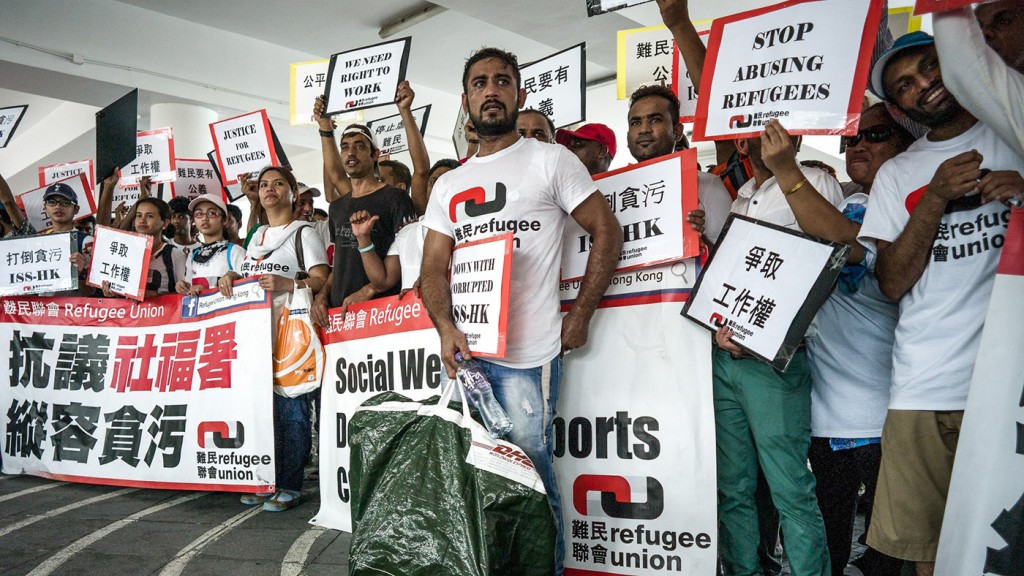
Immigration adopts “Say Nothing” strategy
Jan 22nd, 2015 | Immigration, Personal Experiences, Refugee Community | Comment
I escaped political persecution in Africa in 2004 to save my life in Hong Kong where I have been stranded for 10 years without an end in sight. Like most refugees bounced around by Immigration, I am very upset with the asylum system and the total lack of respect for our problems, worries and fears.
What Immigration is doing is not just inhuman treatment, they ignore our human rights. It goes beyond that – the way they treat us is insulting. You cannot ignore somebody for ten years. For a while you can do it and it can be qualified as inhuman treatment, but when they ignore basic rights too long, it goes beyond this level. It becomes personal because they insult people’s dignity!
Hong Kong Immigration delays hundreds of old cases because the answer would be positive. They are not stupid. They would not keep unwanted people on the streets for 10 years, because then immigration control would be a joke. If they tolerate our presence it means that we have a right to stay. They don’t want to make a determination, because it would be a positive one!
Why don’t they want to take responsibility? Because if they reject us then we have a document that we can take to the courts showing rejection and that would be subject to judicial reviews that Immigration would likely lose. So the strategy is “Say Nothing” and leave people begging in the street. Avoid making a negative decision that could land Immigration in trouble.
There is considerable mental suffering that forces people to find other ways. Like the guys who buys a fake passport and leaves Hong Kong. It is rumoured that many have done it. Theoretically there must be a secret reason to put people under such mental pressure. There must be an unofficial expectation that refugees will find another solution and take their troubles elsewhere.
But Immigration does not explain what the expected outcomes might be. They never explain the Non-Protection Solutions and if these solutions are logically unavoidable. They know that certain people will find a way that is convenient for the government – though unfair for refugees – like marriage, moving to another country, smuggling out and closing asylum claims through so-called ‘voluntary departures’.
This is unfair. Immigration should not be treating people like this. They should be screening and determining, accepting or rejecting. Or else the rule of law is dead. Officers should not play games with our lives expecting possible lateral solutions to keep the refugee acceptance rate at zero-percent. They are ignoring the law. The law seems quite straightforward to me. It is logical, but it is not fairly applied.
Last week my officer called me for a meeting. Then he said that he didn’t bring my file. He called me for an interview, but didn’t have my file? Is this ignorance or arrogance? If it is not his arrogance then it is his boss’ arrogance to treat me like I am a stupid nobody that doesn’t count.
His behaviour told me that I don’t matter. He said, “I don’t know. I am not sure what is in the file”. I was irritated. I was mad with him, so I shouted, “Why did you call me to CIC Clearance section? To waste my time? If this is a picnic then where is my sandwich?” When I asked for clarification, he said “I am not sure”. Hold on, if he is not sure then how can I be sure I will be protected after 10 years?
